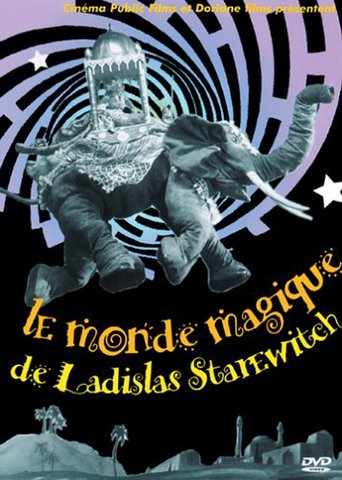suchenwi
After watching this really fascinating puppet film, I wonder even more why Wladislaw Starewicz isn't known more widely as a grand-master of puppetry.But being the first commenter, here's a quick description. The boy Jeannot lives with his mother and grandfather on a tiny farm. Granddad tells him of a magic flower that grows in the forest at night, and can make any wish come true. He only must be back before the cock crows. So Jeannot that night walks out, followed by his faithful dog, and after numerous conflicts, mostly with trees, he gets the magic flower and wishes to be a prince, and meet Cinderella.It all comes true. He gets a stately horse, a castle rises from the ruins, a party is in process, Cinderella is announced, and dances and dates with him - only to leave shortly before midnight. We all know that story. Jeannot receives a note or something about C.'s whereabouts and pursues her on the stately horse, but in vain.. Morning comes, and he's back home again. Was it all a dream? So it appears, but he still has the horse, which comes helpful in plowing the field.If you haven't seen the film, this synopsis may not sound like much. And indeed, it's less the story than the way it is presented - one visual feast after another. I was particularly amazed in how the faces, and especially the eyes were animated. I knew it's only puppets, and yet found them more than life-like many times. Highly recommended, and if you liked it, don't miss other masterpieces of Starewicz, Cameraman's Revenge (1912), Lily of Belgium (1915, a comment on WWI), Frogland (1923, a comment on the Russian revolution) or Mascot (1934).
